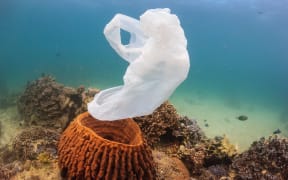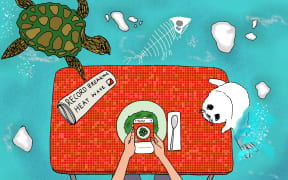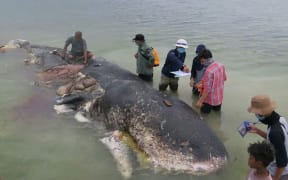A more targeted approach to cleaning up plastic in the ocean could help to reduce seabird deaths, a researcher says.
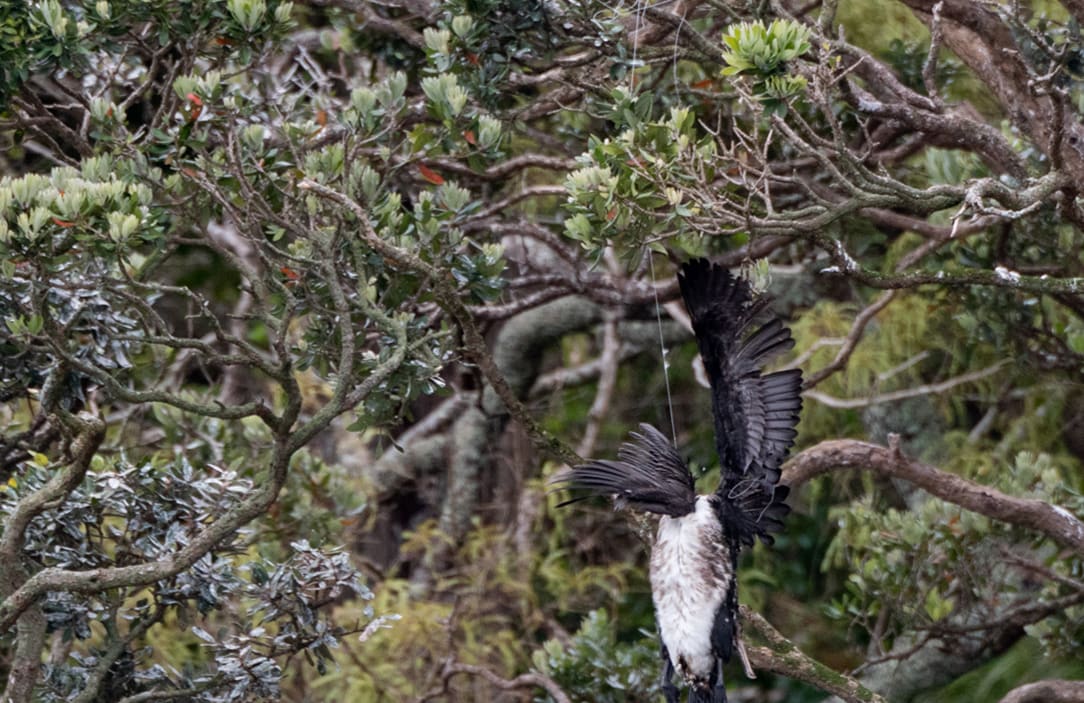
A shag in fishing line, caught in a tree. Photo: Supplied / Edin Whitehead
The idea from a New Zealand researcher comes amid predictions there will be more plastic than fish in the ocean within the next 30 years.
While steps were underway to phase out the use of plastic, 50 years worth of them now circulated in the world's oceans, waiting to be mistaken by rare and endangered seabirds as food.
Researcher and ecologist Stephanie Borrelle found 50 rare prions washed up in a storm at Muriwai Beach in 2016.
An examination of their stomachs revealed all had eaten plastics.
Many ended up with stomachs so full of it that there was no room for any real food so they starved to death, she said.
"They can go back to the colony and regurgitate that plastic to their chicks who instead of getting highly nutritional fatty oils from the fish that they would normally be eating, they'll just get a stomach full of plastic which can retard their growth and cause a whole host of physiological impacts as well as, obviously, death."
Dr Borrelle said one way to reduce the amount of plastic the birds were eating could be to identify parts of the ocean where birds foraged - and there were also large amounts of plastic.
Teams could then be sent out on boats to clean up those hotspots, she said.
"You ideally don't want to have to clean up the plastic that's already in the environment but if we are going to have to clean it up which we kind of are, then finding the places where there is greater accumulations of plastic is a good place to start."
What was seen in oceans was just the tip of the iceberg, she said.
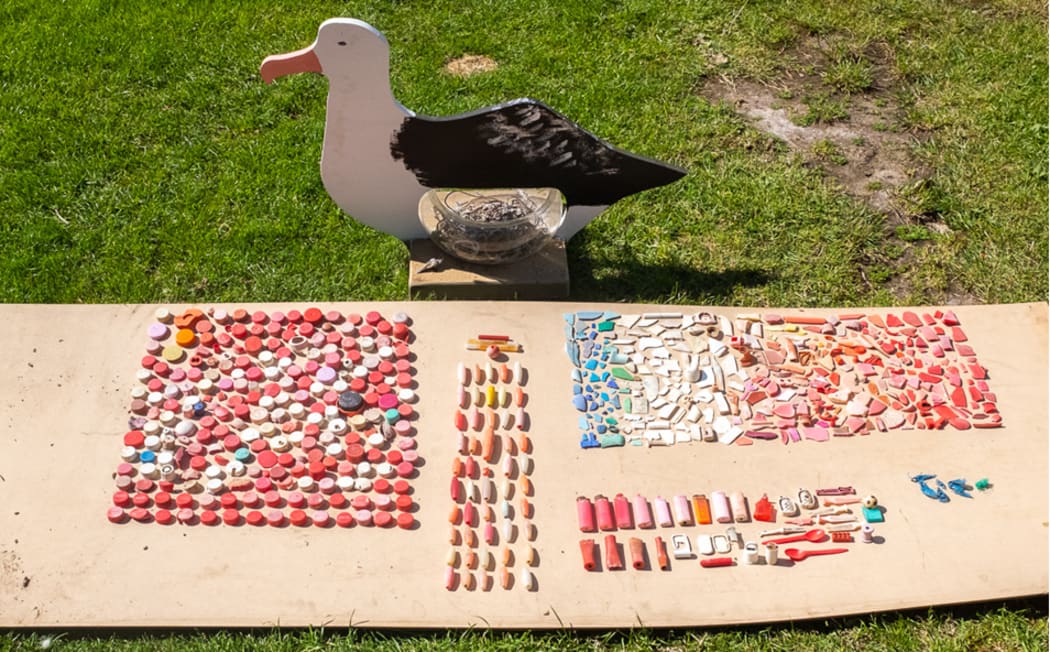
Plastic found by Edin Whitehead in and around Northern Royal Albatross nests on the Sisters Islands. Photo: Supplied / Edin Whitehead
"So we potentially have this very long legacy effect where we're not actually seeing the plastic from 2018, or 2017 or 2016 in the environment yet.
"So there's potentially the legacy of a decade or more of plastic entering the environment."
For the past 15 years researcher Elizabeth Bell found plastic inside the dead birds given to her by fishing crews accidentally caught in their lines and nets.
Soon to be published research would show those found far out at sea had consumed less plastic than those washed up on beaches, meaning clean ups closer to the coast may produce better results.
She applauded Dr Borrelle's call for a more targeted approach to fixing the problem.
"Internationally now there are a lot of researchers now looking into where the big problem areas are, you know they talk about the massive gyre of plastic in the middle of the Pacific that is the size of Texas," Dr Bell said.
New Zealand had an opportunity to lead the world in tackling the plastics problem, Dr Borrelle said.
She noted a quarter of all the world's seabird species called our waters home, meaning anything learned here could easily be applied to efforts to help birds in other parts of the world.

